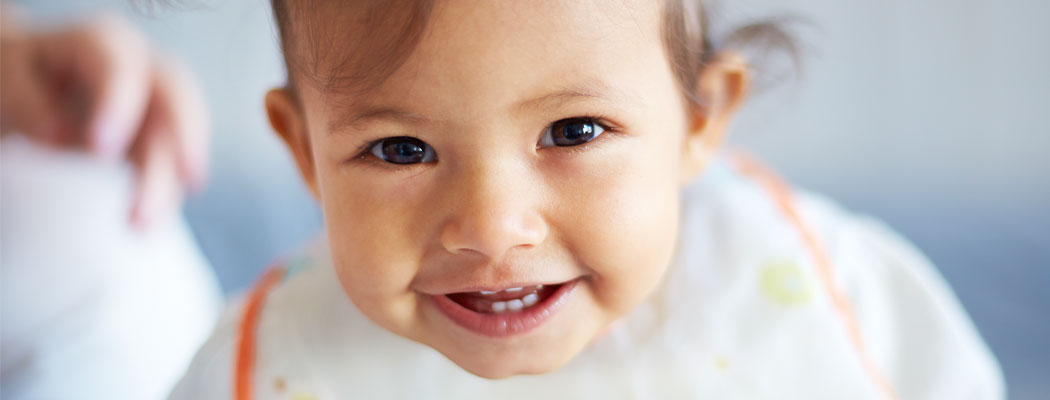Caring For Your Baby's Oral Health
The moment primary teeth start to erupt, tooth decay can become a risk for your child. Regular dental hygiene and dental appointments are fundamental in the prevention of early childhood tooth decay.
When should my child first visit the dentist?
The Canadian Dental Association recommends that a child should first visit the dentist within 6 months of the eruption of the first tooth, or by the time the child is one year old. This may seem a bit young, but there are a some very good reasons that your child should visit the dentist at this stage of development:
- You can find out if your at-home routine for cleaning your child's teeth is effective.
- The dentist will be able to identify and treat developing dental issues, like as decay, crowding or misalignment of teeth.
- Your child will be able to get used to visiting the dentist early in life, making it easier in the long run.
Baby (primary) teeth are very important to your child's health. Regular dental care early on will help ensure that these teeth stay healthy and strong.
Early Childhood Tooth Decay
Prolonged and/or repeated exposure to sugary food and drinks can contribute to early childhood tooth decay.
Bottles can be especially problematic when it comes to decay, since many babies won’t go to sleep without one. If the bottle is filled with formula or juice, prolonged exposure can result in decay.
To minimize your baby’s chances of developing tooth decay:
- Fill the bottle with water only.
- Dilute any juice or milk with water, to allow your baby to get used to the change gradually.
- Substitute the bottle for a clean pacifier or toy.
- Be firm; change is never easy, but your baby will get used to it!
Do Sippy Cups Affect Baby Teeth?
Sippy cups are a useful transitional tool, but they can also heighten the risk tooth decay, just like bottles can. They’re a great tool for getting your child accustomed to drinking from a cup rather than a bottle, but sippy cups should be used moderately, rather than as a replacement for a bottle (thus defeating the point, anyway). Avoid extended periods of use, and if your child must take the sppy cup to bed, be sure to fill it with water.
Caring for Your Baby’s Teeth at Home
Before primary teeth erupt:
Use a clean, damp cloth placed over your index finger to carefully wipe your baby’s gums down after meals. Clean all the surfaces of the gums: front, back and flat surfaces.
After primary teeth begin to erupt:
Once your baby's first tooth has come in, you can start cleaning it. And once two teeth have emerged next to each other, you can start flossing!
Continue to use water and a cloth while your child is under 3 years old or so, and then start transitioning to a toothbrush and toothpaste if you think your child is ready. Use only tiny amounts of toothpaste at first, until your child gets used to the taste.
Many pharmacies stock toothbrushes for children in a range of age-appropriate sizes. You can also find toothpaste with kid-friendly flavours. When picking out floss, pick a soft, flexible variety, such as 'ribbon' floss.
Download our FREE SmileTown Children's Activity Booklet.
This fun resource will help your kids get ready – and excited – about visiting the dentist.
Enter your email address below to get the FREE activity book and to receive our latest news and updates.

